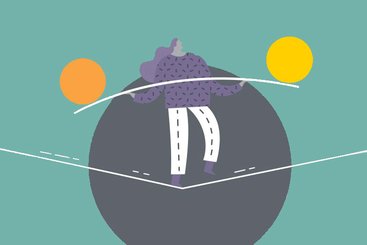We are living in a world where everything – from pipelines and processors to populations on the move – is a potential weapon to be deployed by states wanting to reassure, protect and advantage their citizens.
But are high-income countries prepared to invest at scale to achieve shared mutual interests with low-income countries, which are viewed with suspicion – even as possible foes? Or do their allocations suggest that they are weaponising finance to achieve their tactical, short-term goals?
ODI’s newly updated Principled Aid (PA) Index underlines that not all strategic interests in concessional forms of international public finance (i.e. aid) are created equal. Donor motivations are like tides that ebb and flow between the extreme poles of altruistic values and narrow self-interest. The Index looks at how donors allocate their aid, which can reveal the true intentions behind their aid-giving.
PA is a way of exhibiting smart development power in a world filled with uncertainties. It cannot be taken for granted when the goal of winning allies, defending democracy and safeguarding supply chains is increasingly ensnaring development cooperation. PA scores measure countries’ commitment to advancing their long-term enlightened self-interest in three dimensions: bridging development gaps, advancing global cooperation and displaying public spiritedness. A high rank indicates that a country recognises how its own interests in global stability, prosperity and resilience are tied to the success and well-being of other nations, especially lower-income countries.
Due to data lags, the 2023 Index captures allocations recorded in 2021, the most recent year for which there is confirmed data. This means it captures allocations made during the acute phase of Covid-19 and does not include donor responses to the Ukraine conflict. As indicators are calculated as shares of official development assistance (ODA), a country with low ODA has as much a chance of being principled as a high ODA-spending country. This makes the Index agnostic to ODA measurement changes, which some suggest risk overstating the proportion of loans counted as ODA. A full summary of our indicators, scoring and aggregation, and data testing and approaches, as well as a 2023 update note detailing the changes to the indicators, are included below.
Covid-19 bump for Principled Aid
Overall, we see an increase in the average PA score, with a noticeable bump between 2020 and 2021 during the most severe phase of the Covid-19 crisis.
Covid-19 seems to have pushed donors into action in several ways. First, it increased social spending in countries that struggle to fund social safety nets. Countries like Haiti, Afghanistan and Mozambique have multi-dimensional vulnerabilities where the effects of economic shutdowns and physical lockdowns had adverse consequences for income, health and education outcomes.
Second, Covid-19 prompted greater investment in controlling communicable diseases, even if we exclude controversial vaccine donations which are charged back to the ODA budget. Spending on infectious disease control and core contributions to multilateral health institutions and funds grew. This effect would have been even larger had we included the global funding earmarked for Covid-19 under the Access to Covid-19 Tools Accelerator.
Last, geostrategic aid allocations were more muted during the first two years of the Covid-19 pandemic, with less alignment between donors’ aid allocations and voting patterns supporting their positions at the UN General Assembly (UNGA). This effect may be due to the pandemic-induced disruptions in UNGA proceedings more than anything else, and we expect this trend to be unwound when 2022 data becomes available given the geostrategic games being played at the UN over the Ukraine crisis.
A mixed bag of donors
Notwithstanding the optimistic headline, there is more of a mixed bag when looking at individual country performance.
Only top performer Sweden has managed to maintain a balanced performance across all three principles, ranking in the top ten on development gaps (3rd), global cooperation (2nd) and public spiritedness (6th). As Sweden begins reforming its development cooperation to align with the new centre-right government's fiscal, trade and border security priorities, this may tilt allocations towards narrower self-interest, in the process sacrificing the soft power influence it has cultivated over many years as a smart development power at the top of several league tables.
In fact, high-ranked countries in 2020 saw a greater decline in their scores in 2021 than lower-ranked countries. Ireland, for instance – a consistent top performer until 2020 – has seen the largest fall in its overall score, dropping down to second place. Meanwhile, Greece is the worst-ranked country but had the highest improvement in its score.
This suggests that increases in PA scores are being driven by those at the bottom of the table, rather than more expansive commitments by high-ranked countries in Scandinavia or the Anglo-Saxon world (e.g. the US, the UK, Australia, Canada). Germany has consistently ranked mid-table, slightly ahead of France, though both countries have seen upward movements in their scores in 2021 compared with 2020.
Where are we headed?
The pandemic gave impetus to the logic that aid generates mutual benefits for both providers and recipients, with aggregate allocation trends suggesting a general embrace of investments reflecting enlightened self-interest rather than weaponisation. This occurred even as global institutions like the G20 floundered in their Covid-19 response.
We expect to see growing investments in tackling global challenges like the climate crisis and gender equality (scores on both have been steadily going up since 2019), as well as humanitarian responses in conflict-affected states like Ukraine and Sudan which will likely push PA scores upwards.
At the same time, if scores are driven by higher performance in lower-ranked countries, this raises questions of whether there is a ceiling to Western donor desires to support a vision of principled nationalism using the levers of aid in today's fraught geopolitical environment.
While donors recognise that their interests are tied to what happens in low-income countries, changing their practices seems to be significantly harder. We see plateauing in the share of ODA delivered directly to countries, as well as the degree to which aid is both formally and informally untied from domestic commercial interests. Notwithstanding the growing political momentum for localising and decolonising aid, donor practices have some distance to travel to meet these ambitions for reform.
Principled Aid Index
This index measures the degree to which countries use their aid budgets to align their national interests with global interests and goals.




